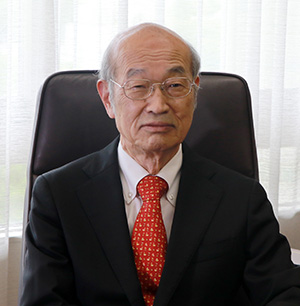On June 24, the International Monetary Fund (IMF) released a revised outlook for its World Economic Outlook, which was released on April 14. At the press conference announcing the previous outlook, a representative stated, "The world has changed dramatically in the last three months," highlighting the scale of the economic impact of the COVID-19 pandemic.
The IMF's most authoritative World Economic Outlook is published every three months. Therefore, we had expected that the April forecast, which revealed the dramatic changes in the world economy, would be revised in July, but since the changes have been so drastic since then, I think they rushed the revision this time. The wording in the press release has also been changed to "an unprecedented crisis," further strengthening the sense of crisis.
And that's no surprise. In January, before the pandemic, the world economy was expected to grow steadily, including Japan, by 3.3% (real). However, in the April forecast, the prediction was changed to a prediction that far from positive growth, the economy would fall into a steep contraction of 3.0%, the worst since the war. This time, the growth forecast for 2020 has been further revised downwards, to minus 4.9%. Incidentally, Japan's growth rate is expected to be minus 5.8% (April forecast was minus 5.2%), and the US's growth rate is expected to be minus 8.0% (same April forecast was minus 5.9%), widening the negative margin.
Moreover, as both this outlook and the IMF acknowledge, there is unprecedented "uncertainty." This is because it is virtually impossible to predict when the pandemic will end, including when a vaccine will be developed. In its latest outlook, the IMF projects the world economy's growth rate to be 5.4% in 2021, but presents a risk scenario in which growth could fall to almost zero if a second wave of infection occurs.
We should prepare for the Japanese economy to fall into its deepest recession since the end of the war. It may take at least several years to recover. It took almost five years to recover from the Lehman Shock, which was said to be a once-in-a-century event at the time (the global financial crisis that occurred in September 2008 when the world's largest investment bank, Lehman Brothers, suddenly went bankrupt).
However, as history shows, the economy has cycled between boom and bust. Here is an anecdote related to this. In the 1990s, during the time of President Clinton, the American economy continued to expand for a long period of time. At that time, the Internet was widespread and IT (information technology) innovation was progressing, so it was said that "the American economy has entered the era of the New Economy" (2001 "Statement of the President's Economic Report"), and there was also discussion that "business cycles have disappeared. There will be no more recessions." In response to this, Professor Paul Krugman, a leading economist at the time who later won the Nobel Prize in Economic Sciences, wrote in a book review in the New York Times, I think, that "the economy is cyclical for some reason. Therefore, recessions are bound to come." In fact, the American economic expansion that began in April 1991 lasted exactly 10 years and ended in March 2001.
In fact, the longest economic expansion in the US since the war was the 10 years under Clinton, but the economic expansion that began after the end of the Lehman Shock broke the record at 128 months, peaking and ending in February. The Japanese economy has also had a low growth rate since the Lehman Shock, and while it has been said that it "doesn't feel real," it is believed to have ended in February, recording the longest economic expansion since the war. There has been no official announcement yet, but if it ends in February, it will be 87 months. The economic expansions of Japan and the US, which continued to break records, ended just before the coronavirus shock.
The coming recession is likely to be on a scale that will drastically surpass previous records in both depth and duration, but it will definitely end. In the next issue, let's think about "how to prepare for what comes after."
(June 26, 2020)

[Profile of Shigeo Uchida]
Graduated from the Faculty of Economics at Keio University in 1965. Joined the Nikkei Inc. After working in the Securities Department of the Editorial Office, the Japan Center for Economic Research, head of the Securities Department at the Tokyo Head Office and as an editorial writer, he became Professor Chiba University of Commerce in 2000. He has been Managing Director Corporation since 2011 (until May 2019). He is also Professor Emeritus Chiba University of Commerce. He has served as a member of the Economic Council, Securities and Exchange Council, and Research Council for Energy, among others. His hobby is chorus.
<Major publications>
"Seminar: Introduction to the Japanese Economy" (co-author, Nihon Keizai Shimbun)
"Showa Economic History (Part 2)" (co-author, Nihon Keizai Shimbun)
"The New Japanese Economy" (co-author, Nihon Keizai Shimbun)
"History of Japanese Securities 3" and "Now You Can Understand! How the Japanese Economy Works" (sole author, Nihon Keizai Shimbun, Inc.)
"New Introduction to the Japanese Economy" (co-author, Nikkei Publishing Inc.) and others